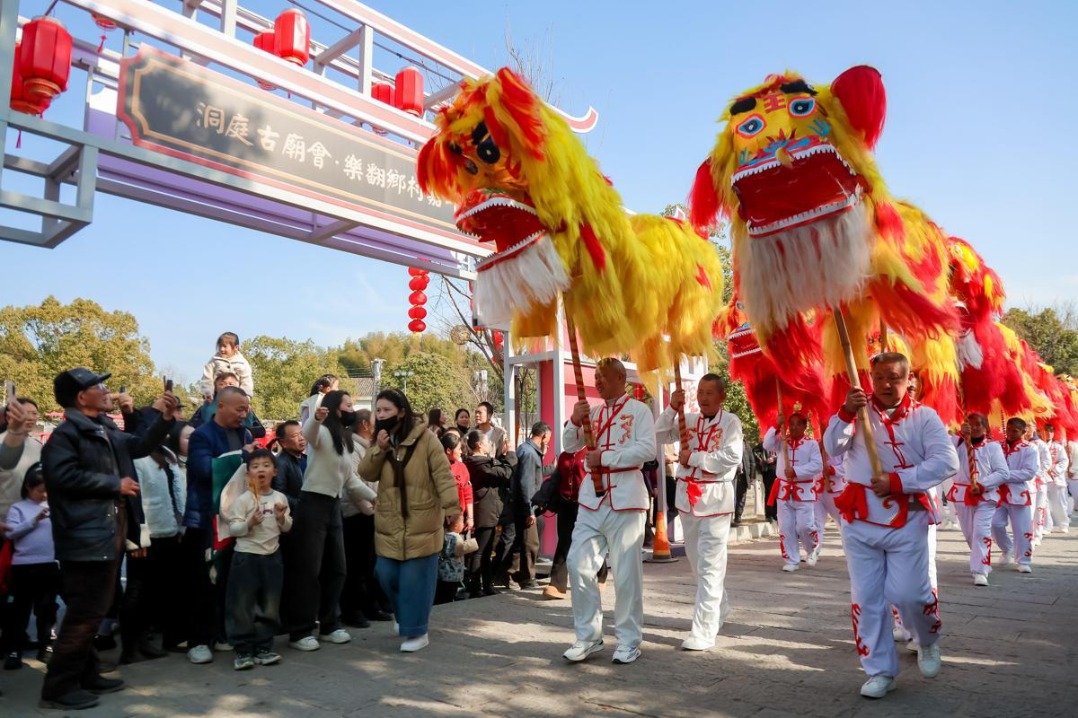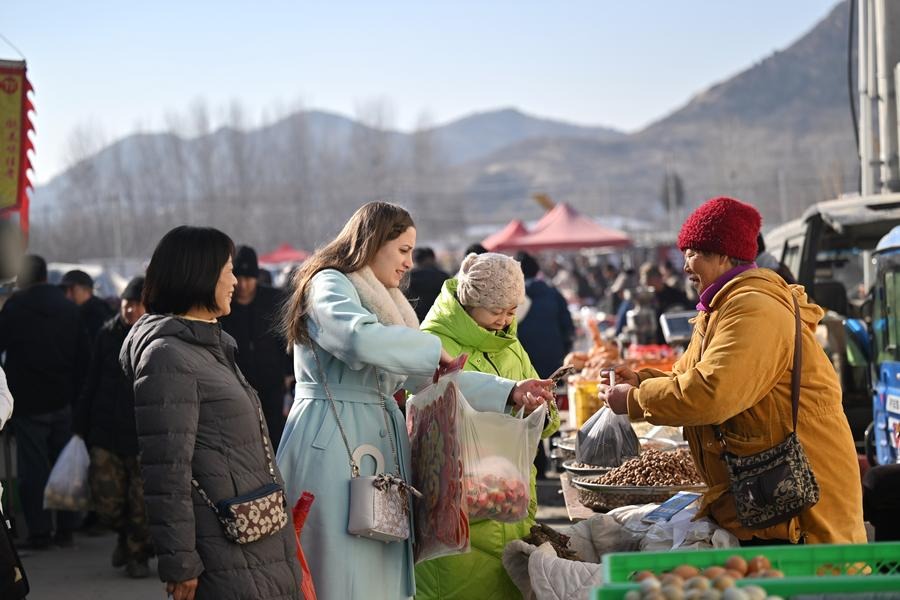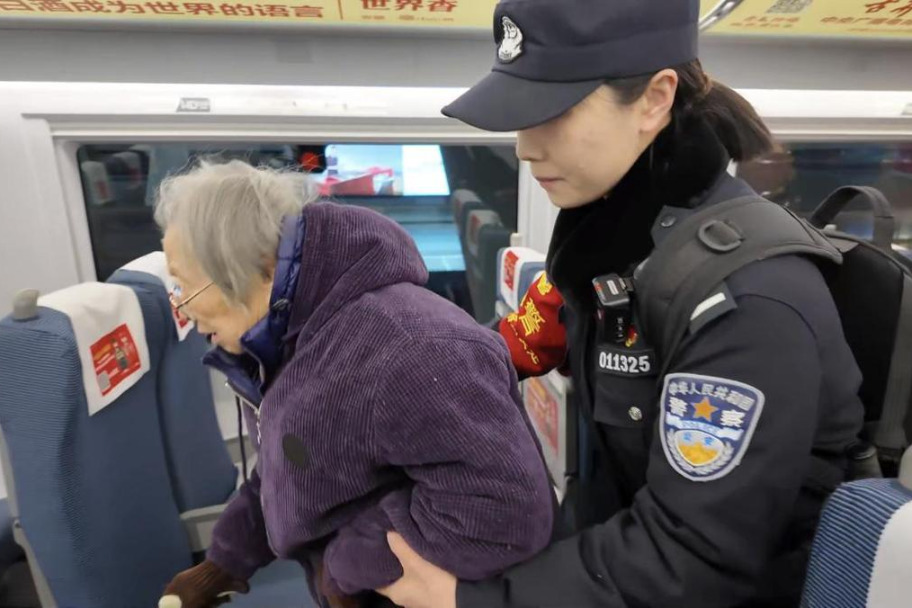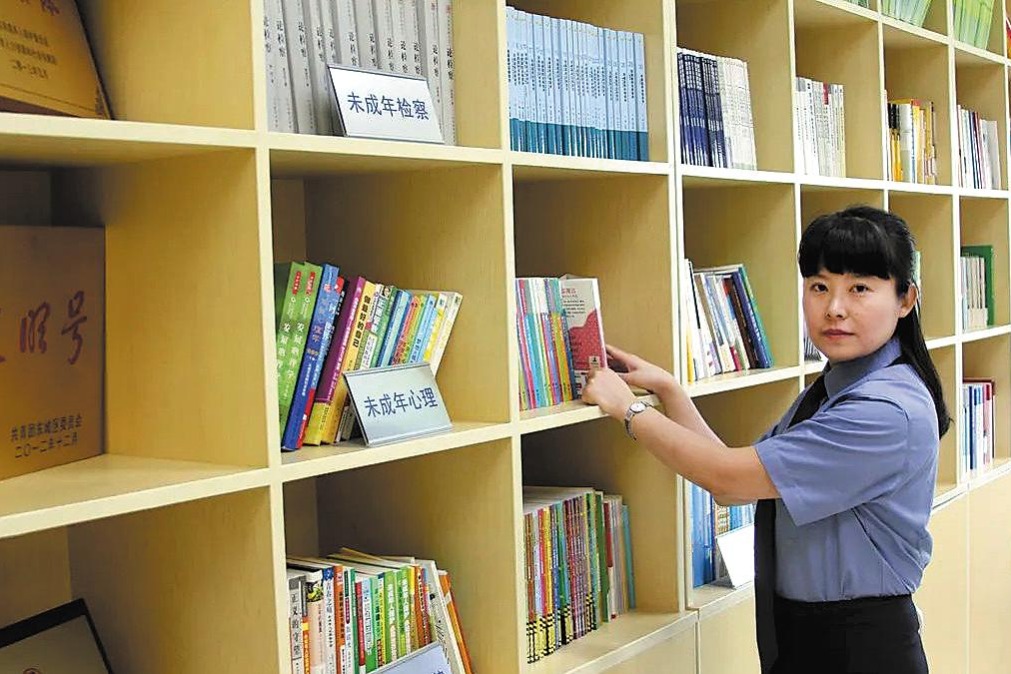New central department to help modernize nation's social governance


Social work: Expert welcomes greater attention to sector
The Communist Party of China Central Committee has unveiled its new Social Work Department, which experts said is part of a broader effort to modernize the country's social governance and better handle complaints and proposals from the public.
The new department is tasked with leading work in fields such as promoting voluntary services, training social workers, responding to public complaints, managing industrial associations and administrating grassroots communities.
A range of government and Party departments were formerly responsible for handling work in these areas, including the Ministry of Civil Affairs, the State-Owned Assets Supervision and Administration Commission of the State Council and the Central Guidance Commission on Building Spiritual Civilization.
Guan Xinping, director of the Institute of Social Construction and Management of Nankai University in Tianjin, said that bringing together such "social governance and service functions" in one unified department will help to boost efficiency and curb bureaucracy.
The former situation, in which this work was spread across a number of different departments, had increased costs in terms of cross-departmental coordination.
"The civil affairs ministry took care of grassroots governance, the Organization Department of the CPC Central Committee was in charge of Party-building issues, and security matters were overseen by the Political and Legal Affairs Commission," he said.
The creation of the Social Work Department was outlined in an institutional reform plan issued by the CPC Central Committee and the State Council, China's Cabinet, and released to the public on March 16 by Xinhua News Agency.
The departments of the CPC Central Committee include the Organization Department, overseeing personnel affairs, the Publicity Department, the United Front Work Department and the International Liaison Department.
The Social Work Department was created 17 years after the CPC decided at a key Party meeting in 2006 to foster a team of professional social workers. The effort was directed at modernizing social governance by delegating some public duties to organizations capable of offering professional services, such as care for the elderly, through means of government contracts.
Guan estimated that more than 300 colleges nationwide have social work-related majors and more than 100 of them offer master's degrees for social work. There are about 1.7 million social workers across the country.
The professor said that quality development applies not only to the economic sector, but also to social issues. "The quality development of society must be supercharged by a strong social work sector."
Guan said he was glad to see that the latest institutional overhaul — which also includes the creation of a financial commission and a science and technology commission — ranks social work alongside the traditionally important fields of finance and technology.
In recent years, some more developed areas of the country, such as Beijing and Shanghai, have created social work commissions to lead such work. Experts said that the success in those areas has partly paved the way for creating the Social Work Department.
In addition, the CPC Central Committee has placed work related to handling the public's complaints and proposals under the direct leadership of the new Social Work Department.
People's complaints and proposals have long served as an indication of public opinion. Work on handling these supplements the judicial system in terms of helping the public to safeguard its rights and report misconduct, and had usually been conducted through the National Public Complaints and Proposals Administration and its local divisions.
Guan said the decision to create the new department suggests that social work techniques could be employed to handle the public's complaints and proposals, which are usually lodged with government agencies in person in relation to an array of commercial, contractual and property disputes.
That is likely to make institutions handling the public's complaints and proposals less bureaucratic, enabling Party organizations to better communicate with the people. "In fact, work related to handling the public's complaints and proposals, which is part of the Party's mass work, is best carried out by officials with social work expertise," he said.
In an interview with China News Service, Shen Ronghua, a researcher with the Chinese Public Administration Society, said that the Party's direct leadership over affairs related to public complaints and proposals shows the job will be further strengthened.
The complaints and proposals collected from the people are expected to serve as a reference for the Party when it comes to policymaking in the social sector, he said.
Huang Ximing, assistant director of the China Philanthropy Research Institute of Beijing Normal University, told China Daily that bringing this work under the CPC Central Committee's direct leadership will contribute to solving some of the thorniest issues facing the public, and it also further strengthens the ties between the Party and the people.
- Arrest made following actor's disappearance
- Beijing artists on cultural tour to Türkiye to celebrate Chinese New Year
- Output value of China's forestry industry surpasses 10t yuan
- China Coast Guard to strengthen patrols
- China issues over $734m of relief funds for disaster-affected people
- Wuhan's ice and snow industry gains momentum





































